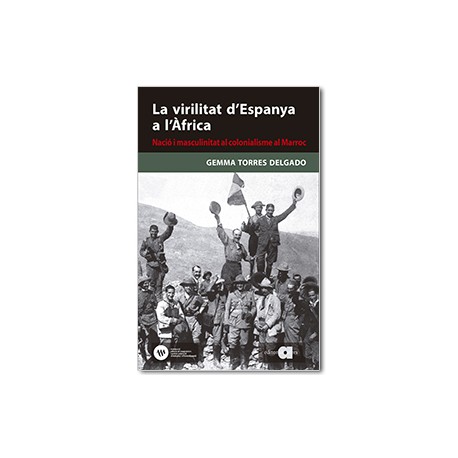No products
Prices are tax excluded
Product successfully added to your shopping cart
There are 0 items in your cart. There is 1 item in your cart.
 View larger
View larger
La virilitat d'Espanya a l'Àfrica. Nació i masculinitat al colonialisme al Marroc (1880-1927)
978-84-16260-82-9
New
La virilitat d'Espanya a l'Àfrica. Nació i masculinitat al colonialisme al Marroc (1880-1927)
304 pp. 2020
|
author Torres Delgado, Gemma |
|
More info
Even thought it has been excluded from the great national narrative, the colonialism in Morroco was a decisive matter in the construction of the spanish nation at the end of the XIX and the start of the XX centuries. It wasn’t a casual thing that from the african army came out the group of military men that rose up against the Republic, among them Franco himself. Spanish colonialism in Morroco has been studied mostly from the military and political perspective, but it’s still little known. This book analizes the colonial process of Spain in Morroco from the start of the comerical and diplomatic take-over since 1880 and the inaguration of the Protectorate (1912) until the period of the Rif wars and the conflict with Abd el-Krim (1909-1927). There are studies about the african context as a scenario to define the identity of the spanish nationality, and at the same time from the gender pernspective, taking into account not the feminity (the most habitual in studies about imperialism and gender) but the masculinity. In the book it’s explained how in Africa it was being built simoultaneously the nation and the spanish manline in a complex interaction between masculinity, nation and empire. It’s talked how an image about the morrocoan man was being buit in an inferior way to help configure the masculine and national spanish identity. The Rif wars have been studied as a fundamental episode in the definition of virility and the reactionary francoist national project, as well as the critics towars this national project from the legalist and liberalism colonialism and the anticolonial sectors (catalan nationalists, anarquists, socialists or republicans), wich wished to abandon Morroco. These critics meddled in national projects in dispute and the spanish model of masculinity.
Gemma Torres Delgado (Barcelona, 1981) is a graduate in Humanities, doctor in History and professor of the Department of Contemporary History in the University of Barcelona. Her activity as investigator has been centered in postcolonian studies and gender, specially in relationship to masculinity. She has participated in diffrent projects of universitary research about gender and inmigration, tourism and gnder and the history of women. She has published alongside Mary Nash, Los límites de la diferencia. Alteridad cultural, género y practicas sociales (2009) and Feminismos en la Transicion (2009), as well as the next chapters in Mary Nash’s book, Enrique Díez i Blanca Deusdad Desvelando la historia (2013): «Huda Sha’rawi: panarab feminism», «Islamic reformation and feminine emancipation» and «Feminism and sexuality in Egypt». About masculinity and colonialism she has published La nación viril. Imágenes masculinas de España en el africanismo reaccionario después de la derrota de Annual (1921-1927); Ayer,106 (2017) and Arquetipos de feminidad y masculinidad en el discurso colonial español sobre Marruecos from Mary Nash Feminidades y masculinidade: arquetipos y prácticas de género (2014).
Reviews
No customer reviews for the moment.


